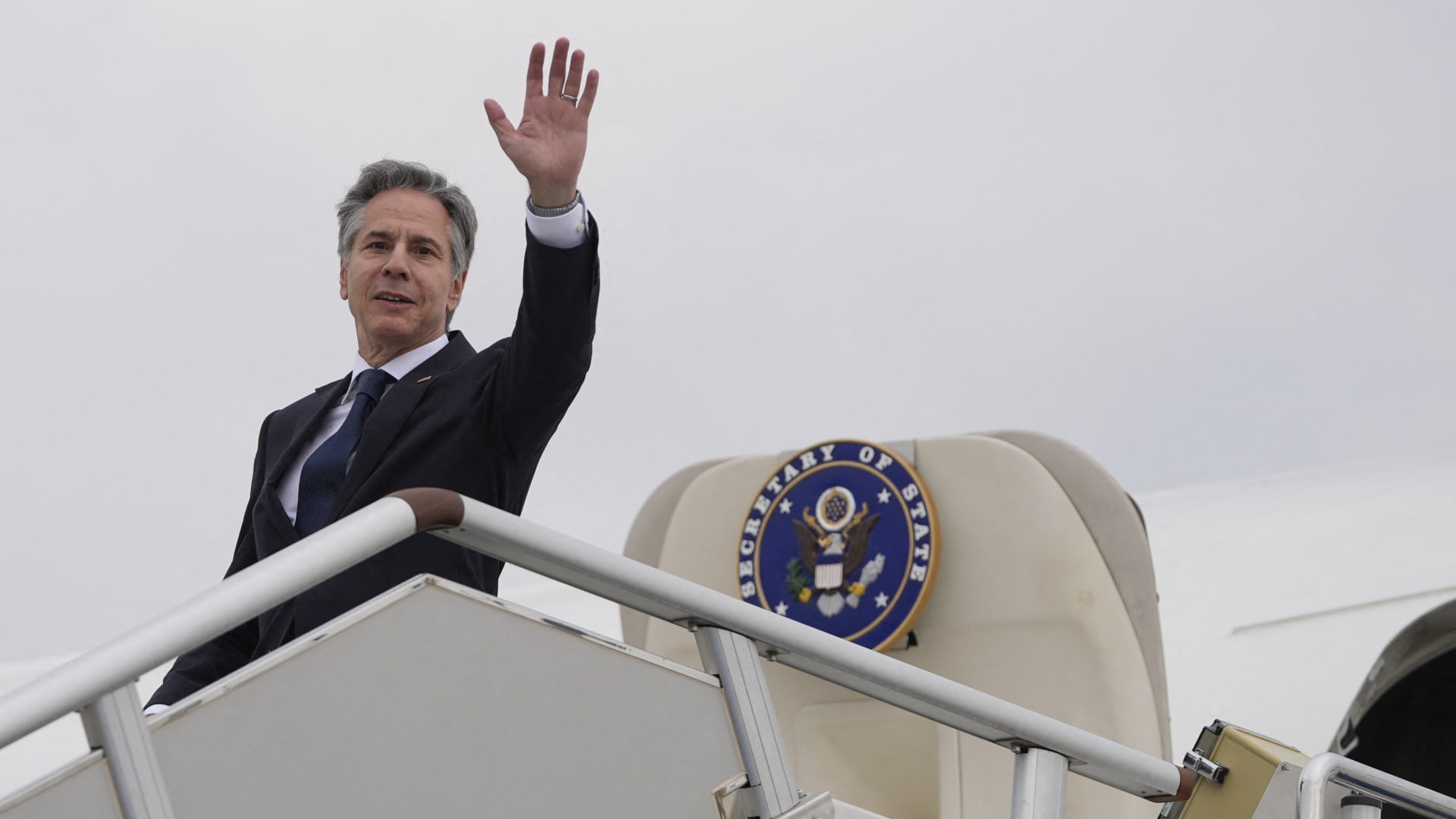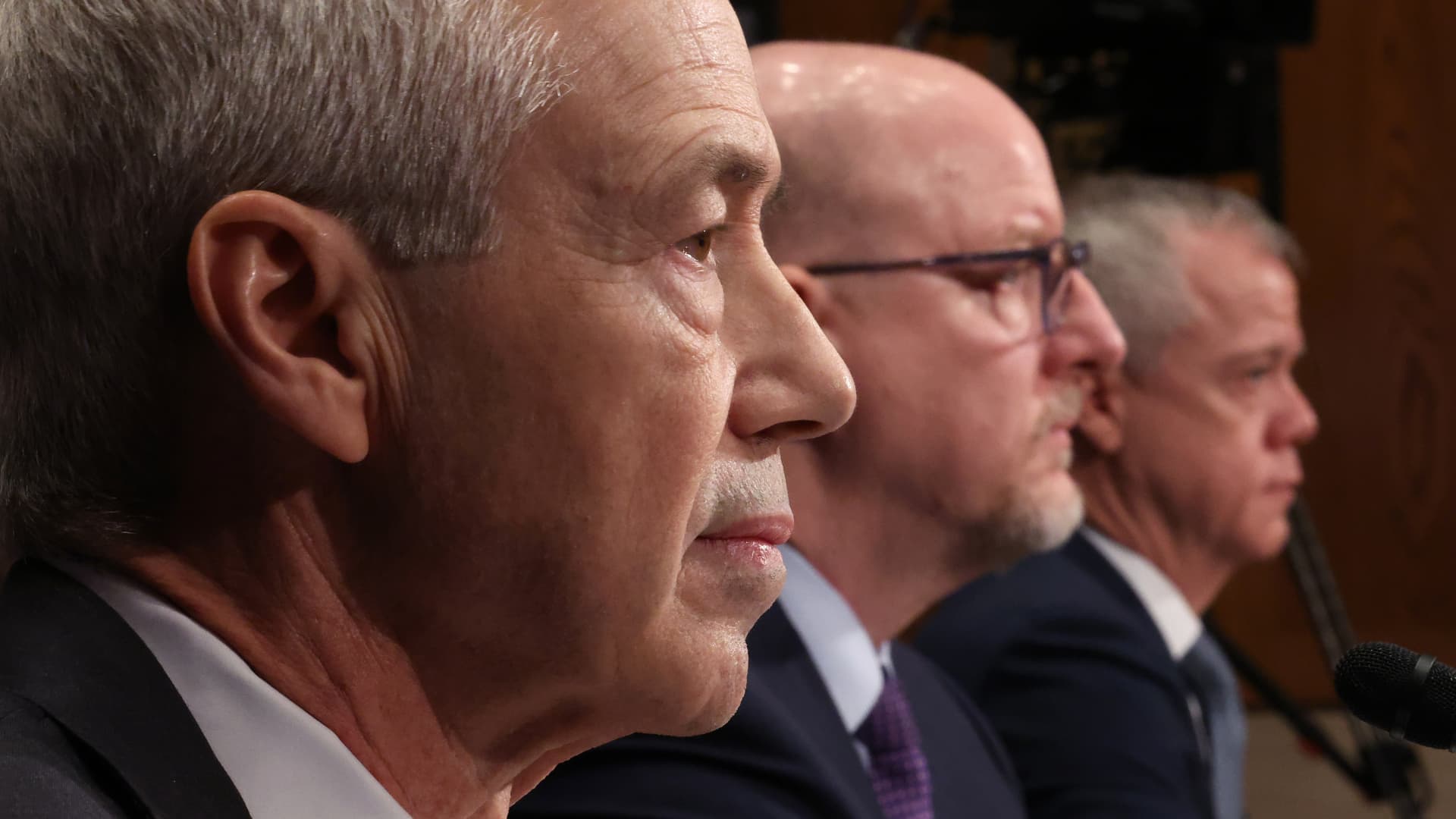A U.S. attempt to have the U.N. Security Council call for an “immediate and permanent ceasefire” in the Gaza Strip failed on Friday after Russia and China vetoed the American resolution that contained some of Washington’s harshest language since the war began.
The resolution reflects the Biden administration’s growing frustration with both the severe humanitarian crisis in Gaza and Israel’s behavior in a war that has killed about 30,000 people and reduced much of the enclave to rubble. The government has pressured Israel not to attack the southern Gaza town of Rafah, where more than a million civilians have sought refuge, and to allow more aid into the area.
But international tensions, including over Washington’s previous use of its veto power in the Security Council and its refusal to call for a permanent ceasefire, doomed the resolution. Eleven members voted for the resolution, but Russia and China – permanent members – voted against it, as did Algeria. Guyana abstained from voting.
Secretary of State Antony J. Blinken, who was in Israel on Friday, expressed disappointment at the failure of the resolution.
“I think we tried to convey to the international community the urgency of a ceasefire linked to the release of hostages, something that everyone, including the countries that vetoed the resolution, could have supported,” said he said.
Israeli Prime Minister Benjamin Netanyahu reiterated his stance that his country’s ground forces would launch an offensive in Rafah to root out Hamas, the group that led the Oct. 7 attack that accelerated Israel’s invasion of Gaza, despite growing international criticism. The Biden administration has repeatedly said an invasion of Rafah, which sits on the border with Egypt, would cause heavy civilian casualties and hamper the delivery of aid.
“We have no way to defeat Hamas without going to Rafah and eliminating the remaining battalions there,” Netanyahu said in a statement on Friday after meeting Mr. Blinken in Tel Aviv. “And I told him that I hope we can do it with the support of the United States, but if we have to, we will do it on our own.”
The US resolution states that the Security Council “determines the need for an immediate and permanent ceasefire.” Representatives of the three dissenting countries and Guyana said it had not gone far enough to call for or enforce a ceasefire.
Amar Bendjama, the Algerian ambassador to the United Nations, said the measure’s reference to reducing harm to civilians in “ongoing and future operations” in Gaza implied a “permission for continued bloodshed.”
“The text presented today does not convey a clear message of peace,” Bendjama said.
After the vote, U.S. Ambassador to the United Nations Linda Thomas-Greenfield defended the resolution condemning Hamas, saying it was presented “in good faith after consultation with all Council members and after several rounds of editing.”
She said Russia and China vetoed the resolution for two reasons: They refused to condemn Hamas and they “simply didn’t want to vote for a resolution written by the United States because they would rather us fail.” for this advice to be successful.” .”
Whether Russia and China were motivated by a desire to thwart or embarrass the United States, it is clear that their relations with Washington are as hostile as ever, with conflict over a wide range of issues, including Russian Invasion of Ukraine, China’s plans towards Taiwan, economic sanctions and trade tariffs. In 2022, Russia vetoed two Security Council resolutions condemning its behavior in Ukraine.
Ms. Thomas-Greenfield said the U.S. draft would have brought the Security Council’s weight into diplomatic efforts “to ensure an immediate and lasting ceasefire as part of an agreement leading to the release of all hostages” and “to enable much more humanitarian assistance.” . to get to Gaza.”
Russia’s ambassador to the United Nations, Vasily Nebenzya, had denounced the U.S.-backed measure ahead of the vote, calling it a “hypocritical initiative” and “watered-down formulation” regarding a ceasefire.
“To save the lives of peaceful Palestinians, this is not enough,” he said. He claimed that the bill was written with US political interests in mind, to “attract and thwart voters.”
He urged council members to vote against the resolution, saying: “We cannot allow the Security Council to become an instrument for promoting Washington’s destructive policies in the Middle East.”
The United States vetoed three previous resolutions calling for an end to the fighting in Gaza. They argued that the measures could disrupt negotiations over the hostage crisis and vigorously defended Israel’s right to defend itself after the October 7 Hamas-led attack. In the council’s votes, the United States was the only one to vote against the resolutions. Russia and Britain abstained from the first vote in October, and Britain abstained from votes in December and February.
But as the death toll in Gaza has risen and hunger and disease have worsened across the territory, President Biden and other U.S. officials have become increasingly critical of Mr. Netanyahu and his handling of the war and have called on him to bring more aid into the country to leave Gaza and do more to protect civilians.
After meeting on Friday with Mr. Netanyahu and members of his war cabinet, Mr. Blinken told a news conference that an immediate ceasefire would allow for the release of hostages and “expanded” humanitarian assistance to ease the acute suffering among the 2.2 million people civilians of the territory.
Mr. Blinken, concluding his sixth Middle East trip since the war began, warned that a major military ground operation in Rafah could not ensure Israel’s long-term security.
“There is a risk that Israel will be further isolated worldwide and its long-term security and reputation will be jeopardized,” he said, adding that U.S. officials looked forward to meeting with Israeli officials in Washington next week “to to talk about another way to achieve these goals.”
Mr. Netanyahu said in his statement that Israel recognized the need to protect civilians and ensure humanitarian assistance to Gaza but was determined to proceed with the planned invasion.
Benny Gantz, Netanyahu’s main political rival, appeared to support that position, saying in a statement that Israel must “dismantle Hamas’ military infrastructure, including in Rafah.” Mr. Gantz, an opposition leader who crossed parliamentary lines to join the War Cabinet, thanked Mr. Blinken “for his support for Israel and the deep American commitment to its security.”
U.S. officials said they believed no Israeli military action in Rafah was imminent, giving the United States time to either help solidify a hostage deal that would bring about a temporary ceasefire or the Israelis at meetings next week to help others to suggest options.
Israel is not yet ready to push its forces into Rafah, which will be a difficult ground operation, they said.
As the secretary of state made the final stop of a multi-stage Middle East tour, William J. Burns, the CIA director, traveled to Qatar to take part in talks aimed at reaching an agreement between Israel and Hamas that would initiate a temporary ceasefire would. Fire and an exchange of Palestinians detained by Israel for Israeli hostages held in Gaza.
Speaking to reporters in Cairo on Thursday, Mr. Blinken said the gap between Hamas and Israel’s negotiating positions was “narrowing” but that reaching an agreement would be difficult.
Julian E. Barnes contributed reporting.
Source link
2024-03-22 22:34:44
www.nytimes.com












